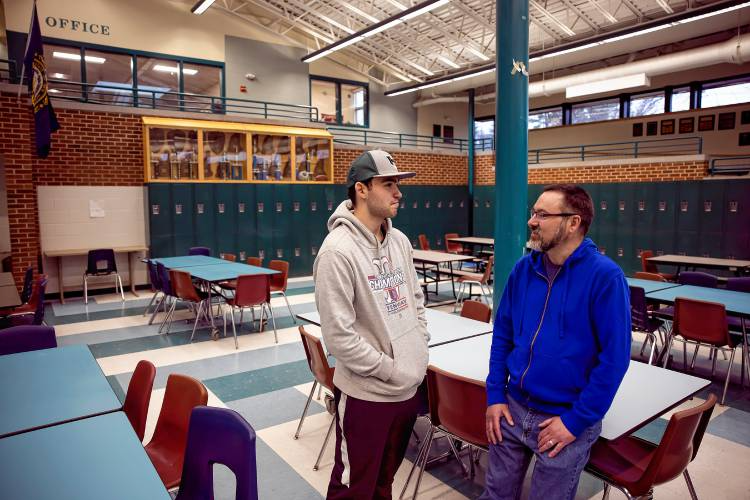Maggie Haberman is busy— with no foreseeable plans to slow down. A New York Times White House correspondent and CNN political analyst, Haberman is constantly immersed in the indefatigable news cycle— a feat that would take a toll on any journalist—let alone one with over 1 million Twitter followers and a Pulitzer Prize under her belt. With the attention of the American people— and the president of the United States— there is undoubtedly a spot light on Maggie Haberman.
Haberman stopped at the University of New Hampshire (UNH) campus this past Tuesday as a featured guest of the Rutman Distinguished Lecture Series on the American Presidency. She spoke about the relationship between Donald Trump and the press—a topic she knows well.
“Distrust of the press obviously existed before Donald Trump, but he has thrown accelerant on it,” Haberman said, “and it’s going to take a while to claw back.”
A New Yorker through and through, Haberman never strayed far from the city she deemed “an amazing learning culture for a journalist,”—though less so with many news outlets shuttering. She now finds a sense of relief there—a welcomed separation from the political nexus of Washington, DC.
“You have to turn it off at a certain point. You have to give yourself some space to think,” Haberman said.
Starting out as a “copy kid” at the New York Post—and bartending to pay her rent—Haberman emerged into the world of journalism in August of 1996 and has since steadily observed the digital transformation that has fundamentally changed the news and how it’s delivered.
“I don’t know that I would have survived in journalism if I had come in now, as important as I find what we do,” Haberman said. “Having the ability to have— and in those days it was four editions— gave you time to think, meant that you weren’t posting constantly, it meant that you didn’t have many news cycles, there were four, and that was it. You had until 7 p.m. to nail your story. Psychically that was important, the fact that we are always on is— I don’t think a good thing.”
The online world has set a new precedent for the state of journalism, with an expectation of instantaneous communication, reactions and knowledge of breaking news. This dynamic has changed the relationship between the press, the administration, and the people.
“He [President Donald Trump] has found a way that he can bypass the press, and I think that gives him a huge amount of power,” Haberman said, “and I think that he knows that.”
“The Failing @nytimes, & ratings challenged @CNN, will do anything possible to see our Country fail! They are truly The Enemy of the People!” President Trump tweeted on June 9, one among many examples of the enmity that President Trump has sown between the press and the people. The idea of “fake news” inherently undermines the credibility of work published by modern journalists. Haberman emphasizes the imperative need for journalism to remain unchanging despite this narrative.
“It [journalism] is about finding a baseline of truth,” Haberman said. “I mean that’s what scares me about this current political moment, is that there’s no longer an agreed upon fact set. I worry about how we get back to that, but that is what journalism is about for me. And it’s also about holding powerful people to account and it is about helping people. That is fundamentally what we are here for, that doesn’t necessarily mean the same thing to everybody, but that is what our job is.”
While one can become lost in the online world by following millions of voices on Twitter, Haberman valued the personal experience she gained by working side by side with journalists, taking in the energy and rhythm of the newsroom, and learning from mentors.
“Find an older journalist who you can admire and either get coffee with them, or read what they’ve written,” Haberman said. “So few people have institutional memory right now and that really scares me. That would be my advice, to look to the past.”
The New York Times remains an essential source of news for the American public. Haberman said that they have more digital subscribers now than ever before.
“I fear that there’s such a proliferation of news and noise that people are tuning it out,” Haberman said. “So that’s my big worry right now.”
With 376 days until the 2020 presidential election, Haberman’s words serve as a reminder of the importance of ethical journalism, democracy and awareness. Especially now—and especially in New Hampshire.
“It’s a big state and it’s an important one in our political process,” Haberman said.




















